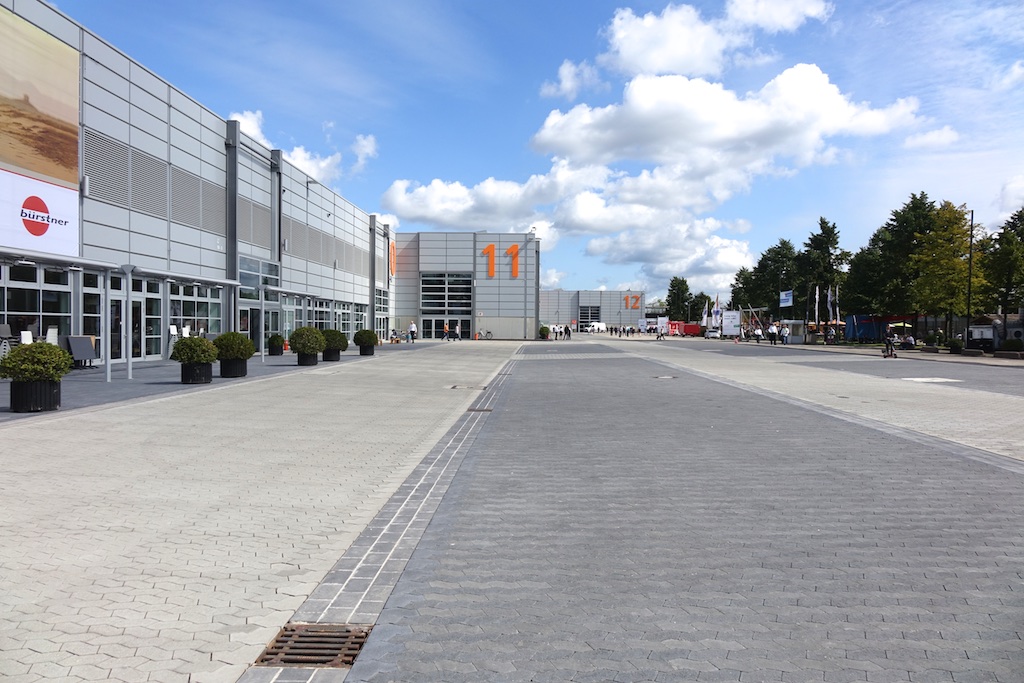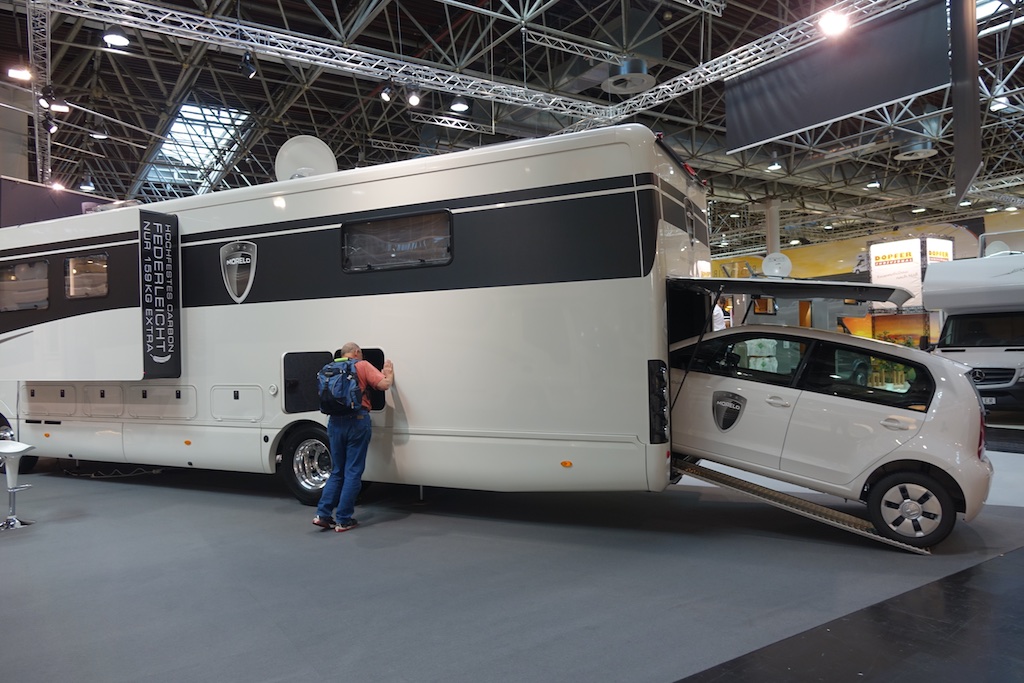
GoLife Goes Big
It's true. In Germany the trains do run on time and the U078 train stopped at our downtown Dusseldorf location precisely as advertised to take us 20 minutes north to the Messe exposition area where we would spend the next few days tagging along with a team of Winnebago product managers, engineers, interior designer, and even a staff member from the purchasing department.
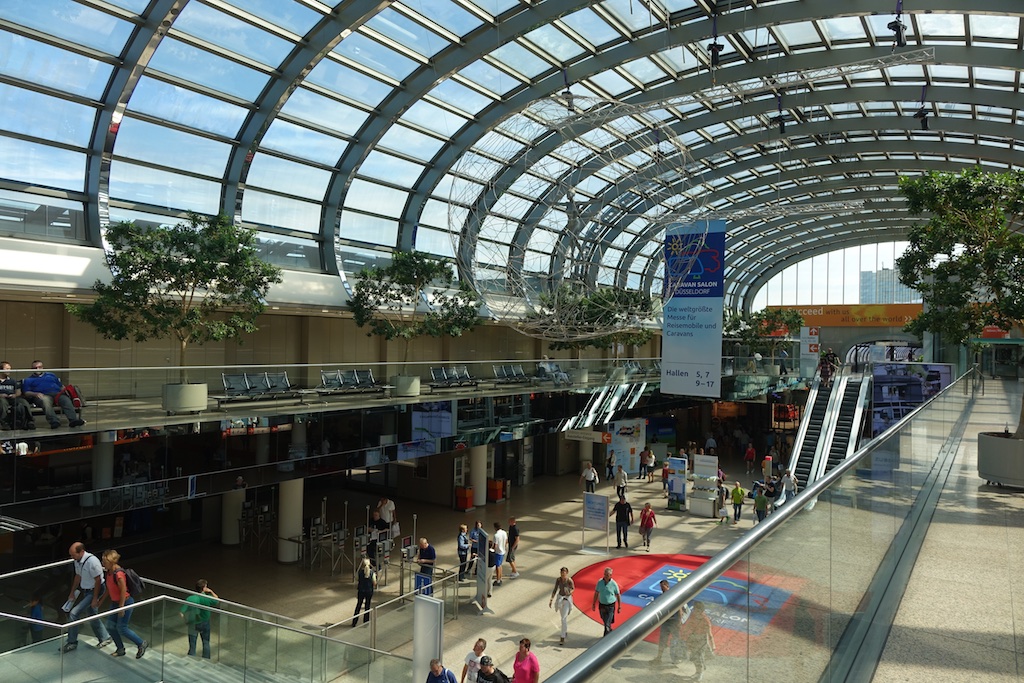 Coming from the train station into the huge Meese fairgrounds complex.
Coming from the train station into the huge Meese fairgrounds complex.
I, like many North American RVers, was shocked to learn that not only is the Caravan Salon the largest RV show in the world, but also Europe is the largest RV market. But, not to worry my fellow US and Canadian RV friends, we definitely own it in terms of vehicle size and camping infrastructure.
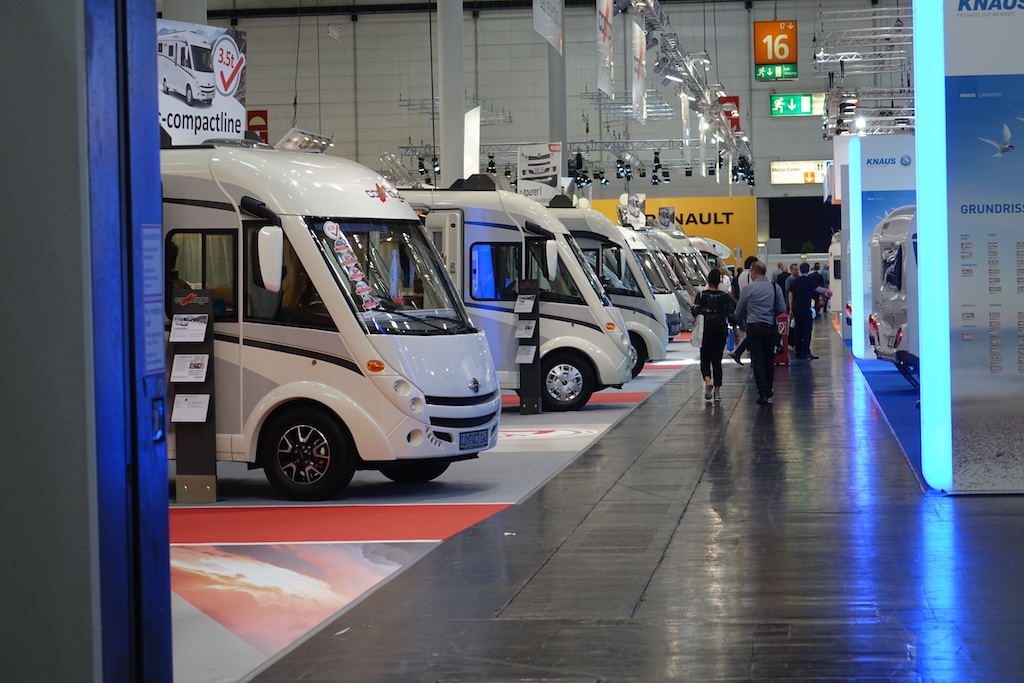 Industry day is quiet and a great time for product research. Then, the next day the crowds show up.
Industry day is quiet and a great time for product research. Then, the next day the crowds show up.
The complex in Dusseldorf is a sprawling arrangement of interconnected buildings that essentially form a ring around a common courtyard area. But, don't even begin to think that this is a quaint affair.
All the buildings are interconnected, and for the public days there are food courts, test tracks for bikes, and adventure areas for kids.
There's 2 million square feet of display area under the air-conditioned roofs. Beautifully lit, and set upon high end flooring and carpet, there are over 2,000 RVs from trailers to park models. My Apple Watch keeps pretty accurate track of my walking and on one day, just within the complex I clocked five miles. Yes, it's that big.
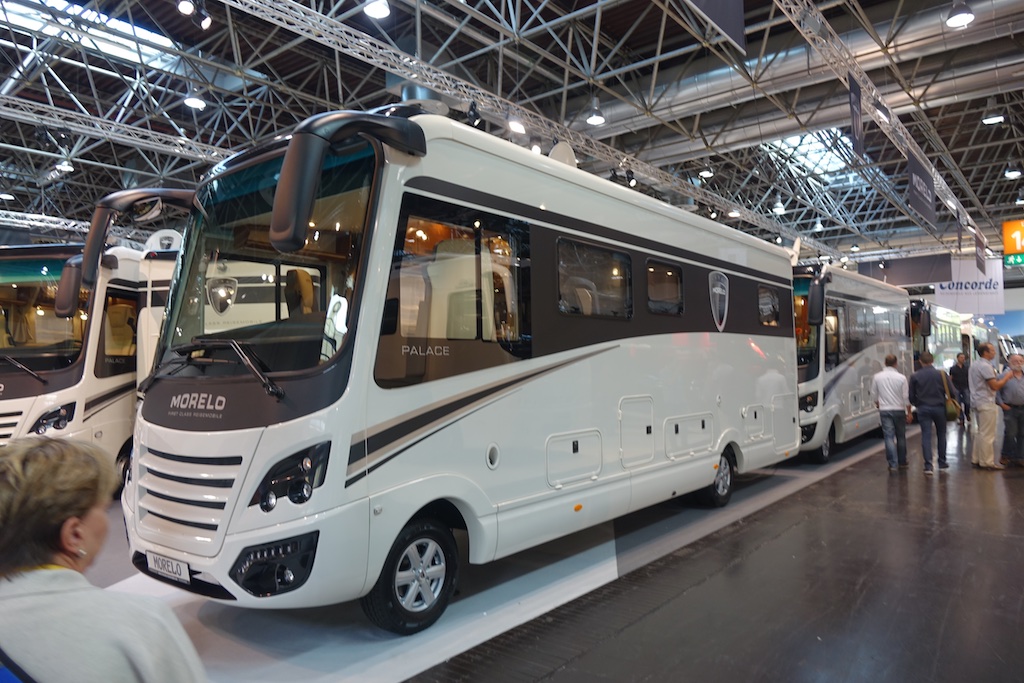 A luxury Class A, but no slideouts. They are very seldom used.
A luxury Class A, but no slideouts. They are very seldom used.
Beyond being larger than it's American cousins the Caravan Salon is significantly more sophisticated and elegant than the more parking-lot style of US shows. But, don't mistake all the sleek Euro glitz for a delicate show pony. These horses are built to run with power. Major displays all have private meeting areas and offices for buyers to sit down and purchase vehicles. International lenders are all in attendance offering attractive 1.99% money with low down payments.
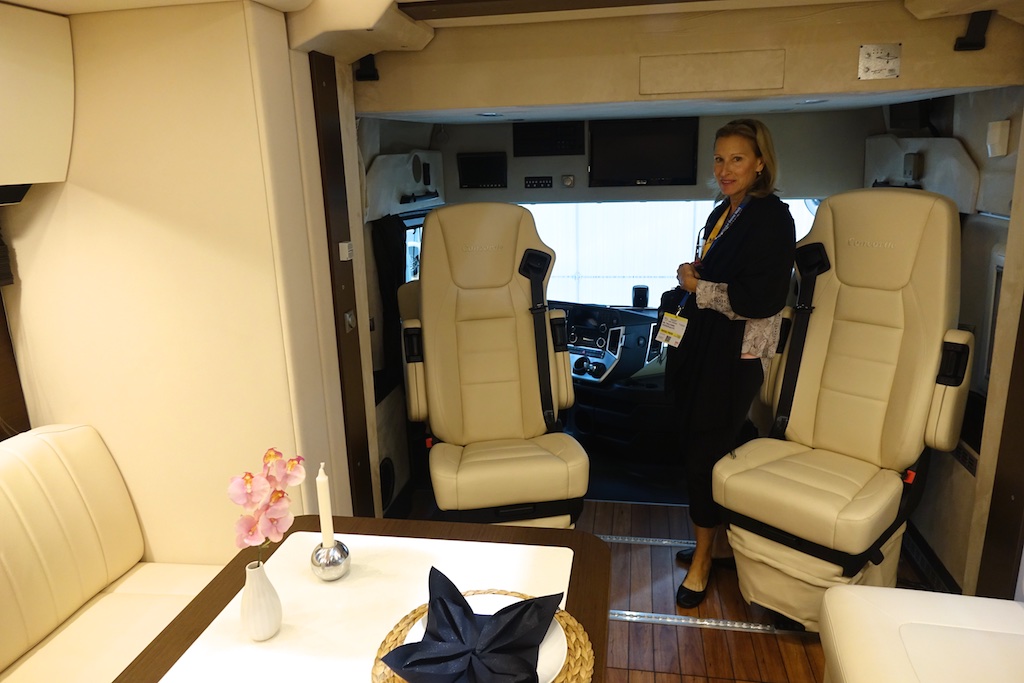 Terry inspects a classy Class A.
Terry inspects a classy Class A.
With the Euro in near parity with the dollar (it was about 10% more as of this writing), it was easy to get a relative equivalency in pricing. We saw towables in the $12,000 - $60,000 range, B-vans from $40,000 - $120,000, C-Class from $60,000 - $90,000 and A-Class from the mid-100's up to $900,000. The $900,000 rig also held a Mini-Cooper in it's mid-section (not-included).
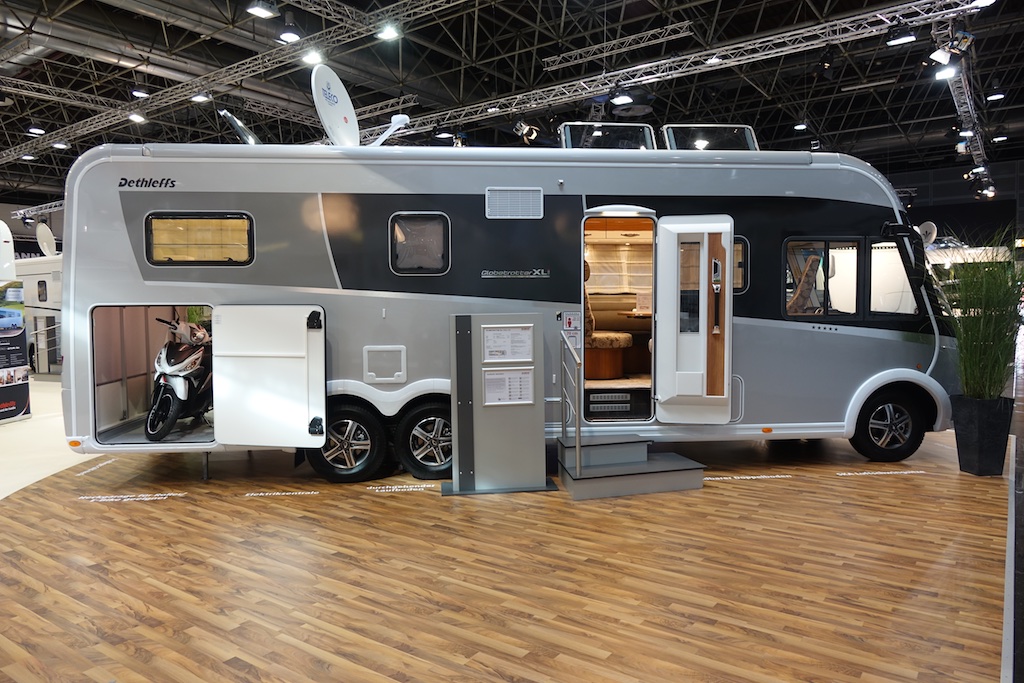 A rare TAG axle, but notice how small the wheels are compared to an American big rig.
A rare TAG axle, but notice how small the wheels are compared to an American big rig.
Now it will come as no surprise that the European rigs are all significantly smaller in just about every metric from height, to width and length. And beyond the size, there are also other notable differences. Most don't have generators, nor do they have roof air conditioners. TVs are generally small and optional. And of the hundreds of motorhome models we walked by, only a handful had slideouts.
Another interesting observation about the motorhomes was the prevalence of large, full-width storage in the rear generally under raised interior beds. Units were frequently displayed showing bikes and motorized scooters in the back. And there's good reason for this -- Europeans generally do not pull tow cars, so they look to other options to extend their local travel mobility.
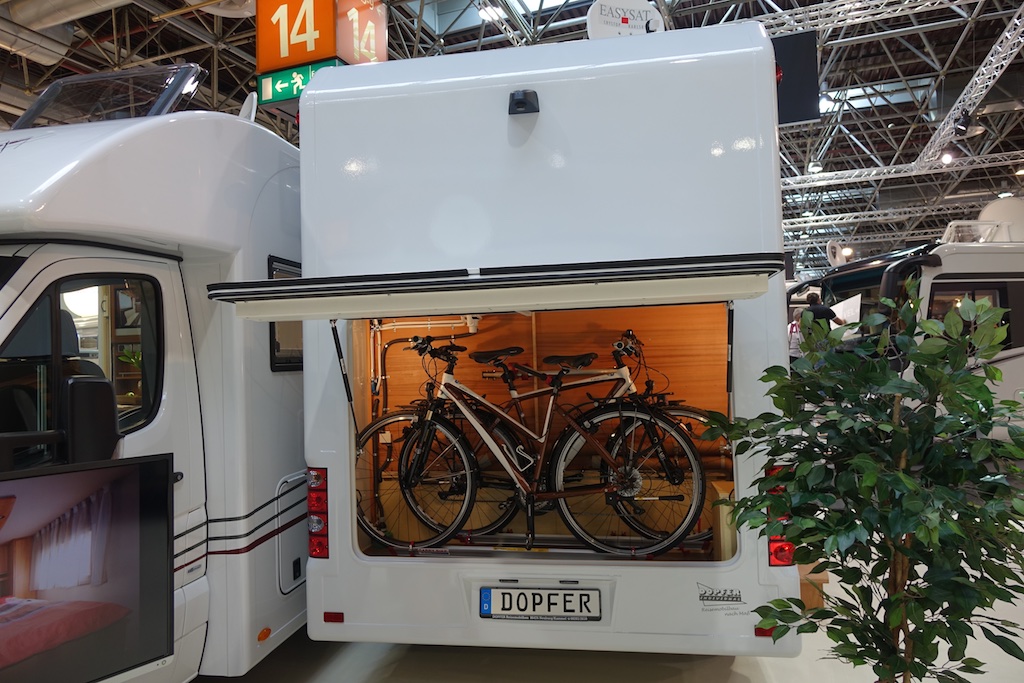 Large "trunks" generally mean that beds in the back are higher up.
Large "trunks" generally mean that beds in the back are higher up.
Of course on a continent where fuel can be a four times greater cost than in the US, the motorhomes are built on fuel efficient chassis. Makers include Mercedes, Fiat, Volkswagen, Ford, Renault, and Citroen. It's pretty clear, however, that the Fiat Ducato is the most popular (known in the US as the Ram Promaster which the Winnebago Travato and Trend are built on). Reflecting the European auto market, the majority of these vehicles also had standard transmissions.
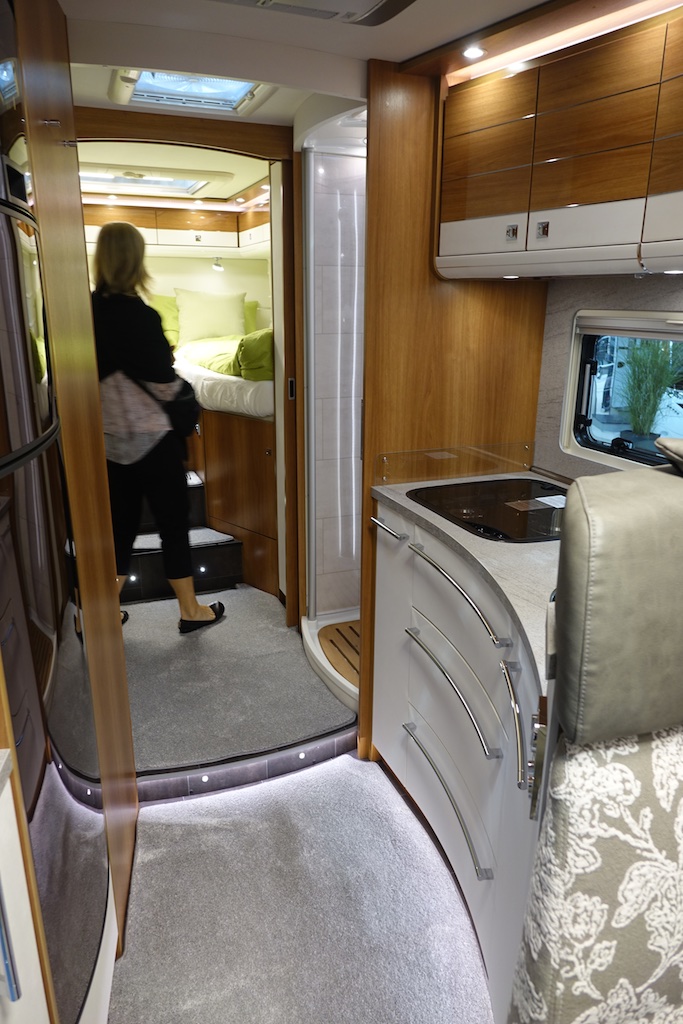 Curved cabinetry and LED lighting give this Class C an elegant appeal. These kinds of finishes are found throughout most products, but at very comparable American prices.
Curved cabinetry and LED lighting give this Class C an elegant appeal. These kinds of finishes are found throughout most products, but at very comparable American prices.
Perhaps the most consistently noticeable difference from our North American products is that virtually all the towables and motorhomes we saw is their interior design. When people say, "that's such a Euro look" -- it aptly describes the sleek, clean, tending toward minimalistic, interiors. You can see this Euro-design inspiration deeply embedded in Winnebago's smaller products like the Travato, Trend and View/Navion, but beyond that, there's a heaviness and general ornateness to American styling in comparision. The philosophical differences are in sharp contrast that "less is more" on the European side of the Atlantic and that "nothing succeeds like excess" view on the North American side.
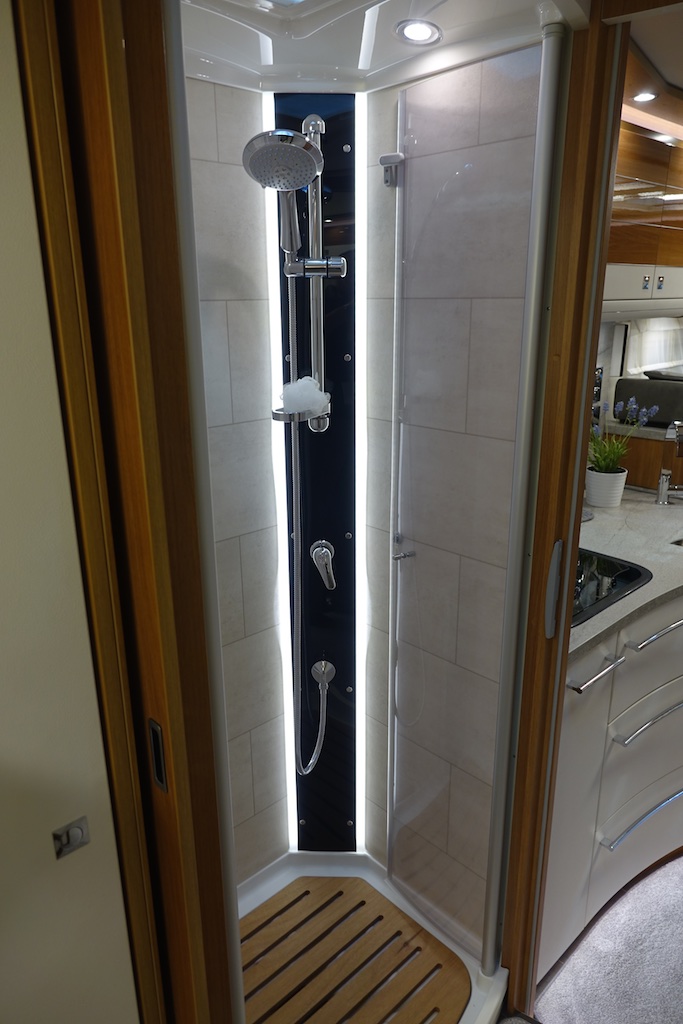 A six-figure coach shower? Nope, it's in a Class C priced under $90,000.
A six-figure coach shower? Nope, it's in a Class C priced under $90,000.
Unlike any other RV company in America, Winnebago has looked to Europe for ideas and inspiration for over two decades. And it's that commitment to a world view that has created some of the most iconic and best-selling smaller motorhomes in North America. That commitment goes well beyond note taking and photos. When Winnebago was in the process of developing the Trend motorhome on the new Ram Promaster chassis (a Fiat Ducato in Europe). They actually bought a European motorhome and had it shipped to Forest City for deeper study.
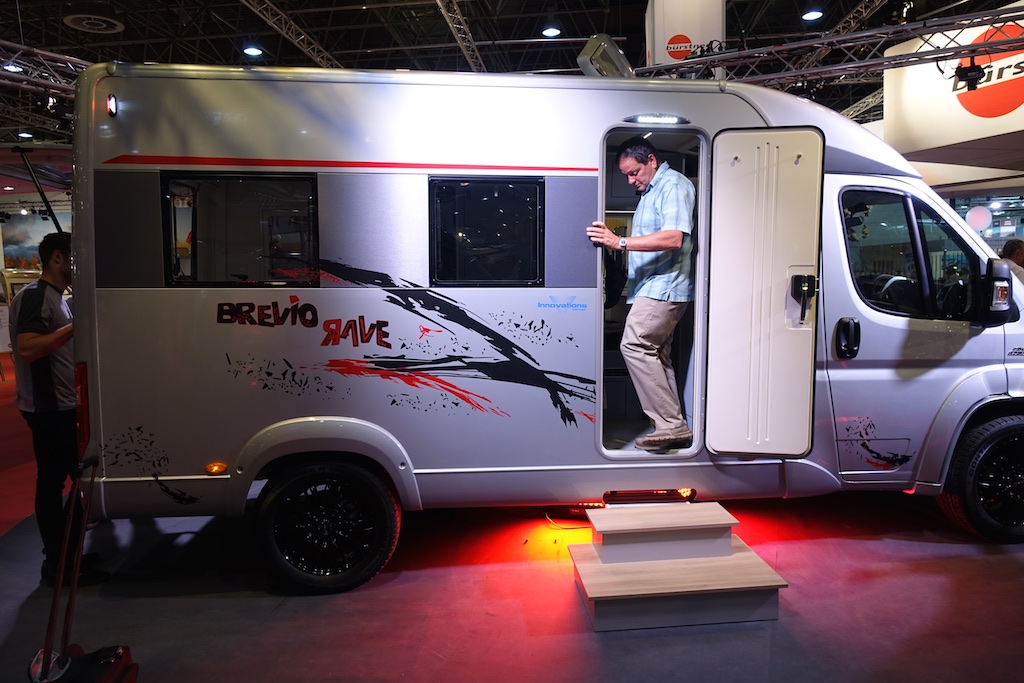 Winnebago product manager, Russ Garfin, assess the potential market appeal of a ruggedized sport coach for active adventurers.
Winnebago product manager, Russ Garfin, assess the potential market appeal of a ruggedized sport coach for active adventurers.
Despite the design and cultural differences, it was great to see the similar enthusiasm for RVing across the pond and I'm sure there will be plenty of good ideas that find their way into Winnebago's future products.
Comments
Comments on this post are moderated, so they will not appear instantly. All relevant questions and helpful notes are welcome! If you have a service inquiry or question related to your RV, please reach out to the customer care team directly using the phone numbers or contact form on this page .
